
Memo to Larry Ellison: The Roman Coliseum halted gladiator combats around 435 A.D. SAP has thrown in the towel and has no interest in continuing a court battle. HP executives are refusing to accept service on your subpoenas, and HP’s newly named chief executive Leo Apotheker is lying low, presumably dodging your increasingly vituperative verbal assaults. You’ve got no takers for the bloody, bare knuckles brawl you crave. What does that tell you?
It should signal an end to the Circus Maximus sideshow, but it won’t.
No one craves this much attention or sticks his chin out spoiling for a fight like Ellison — and in an industry like high tech, which is overflowing with giant egos, that’s saying something. It’s true that Ellison’s antics always make for reams and reams of good copy; reporters calling for comments on the latest developments don’t even bother to suppress their mirth. Enough is enough, though. The Larry Ellison Show would be more amusing if corporate customers weren’t getting caught in the crossfire.
The ongoing court case involving SAP acquisition TomorrowNow is not, of course, just about wresting an enormous US$4 billion settlement out of SAP for copyright infringement. Where Oracle’s chief executive is involved, it’s never just about the matter at hand. There’s always a bigger agenda — and it usually involves a grand spectacle.
Pass the Popcorn
In this case, Ellison is attempting to shoot and wound/kill two competitors — SAP and HP — with the same bullet, all the while “treating” industry watchers to a front row seat to his latest histrionics.
Remember that 60s axiom, “What if they gave a war and nobody came?” That’s exactly how competitors are reacting to Ellison’s bitter, bellicose attacks. The other combatants are surrendering (SAP) or hiding from him (HP’s Apotheker), and Ellison refuses to cease hostilities.
One can only shake one’s head at the serio-comic spectacle of SAP executives who have admitted that the now defunct TomorrowNow infringed on Oracle’s copyright. Earlier this week, SAP co-CEO Bill McDermott apologized to Oracle in federal court (when does that ever happen?) acknowledging that SAP had not been “appropriately vigilant” in overseeing the actions of TomorrowNow. For those not familiar with the case, TomorrowNow illegally downloaded software and support documents from Oracle websites.
Ellison is unlikely to get that $4 billion in damages he claims Oracle is owed for TomorrowNow’s copyright infringement. Ellison testified that up to 30 percent of Oracle’s PeopleSoft customers and 10 percent of Oracle’s Siebel Systems users might have defected. But when pressed to provide actual figures, he revealed that Oracle had only lost about 350 customers and not thousands.
Oracle Customers Concerned
Ellison should count his blessings. Oracle may in fact face customer defections in double-digit percentages over the coming months, and he won’t have anyone to blame but himself.
Over the past four years, Ellison has spent more than $40 billion gobbling up more than 40 companies, including large firms like PeopleSoft, Siebel Systems, BEA Systems, Sun Microsystems and ATG. Under the best circumstances, even the most amicable and complementary mergers and acquisitions are challenging for the merged entities and their respective installed customer bases. Oracle’s seemingly nonstop M&A spree has been characterized by several, very public, protracted internecine conflicts — most notably with PeopleSoft.
Ellison continues to spew venom against his rivals while Oracle’s own customers fume. Sun Microsystems’ SPARC, Solaris and MySQL users — what’s left of them — are increasingly restive and concerned about the fate of these acquired products under Oracle’s brand. They are also increasingly vocal in their complaints about rising service and support costs and worsening security.
Oracle’s own database platform has the dubious distinction of having recorded the highest number of security vulnerabilities of any of the major databases for the last eight years, according to statistics compiled by the National Institute of Standards and Technologies.
On these subjects, Ellison is silent.
Nickel-and-Diming Tactics
Last week, Oracle sought to staunch a backlash from confused and frustrated MySQL users worried about new pricing and packaging options. Rumors swept the Web that Oracle was reportedly doubling the pricing. There’s more to the story than that, but MySQL open source database pricing and support has increased since Oracle acquired Sun.
To be fair, Oracle simplified the complex MySQL product packaging and support pricing structure that existed under Sun. Oracle now gives all MySQL users 24×7 global support. Under Sun, users that purchased the MySQL Basic package for $599 were not entitled to any phone support. Oracle now gives MySQL Basic customers support; however, the new entry-level pricing has risen from $599 to $2,000 for the Standard Edition. Additionally, large enterprises that paid Sun Microsystems $4,999 for the MySQL Cluster Carrier Grade Edition also got sticker shock: Oracle hiked the price to $10,000 per server.
That’s not all. Earlier this year, Oracle quietly initiated widespread changes to the Sun Microsystems’ SunSpectrum support (which officially ended in mid-March) replacing it with a new program. This significantly hiked support costs for many former Sun customers at a time when many businesses were struggling to find the funds for new product upgrades.
On a positive note, support renewals for existing SunSpectrum contracts are now priced at a flat annual price based on the individual user’s SunSpectrum contract. The renewal price is the same as the SunSpectrum contract currently in place. However, users who read the fine print will note that Oracle changed the terms and conditions of its hardware warranties and Premier Support for Systems contracts.
Translation: Oracle cut back on standard support services and will provide on-site coverage only for specified products. Oracle’s new product coverage and support fees for the former Sun products and services take the concept of “nickel and diming” to new heights.
Higher Prices, Lower Satisfaction
Customers that want 24×7 coverage, on-site response and faster responses times above and beyond a limited one-year warranty and Monday- through-Friday phone support will pay handsomely for top-tier coverage. Oracle now requires customers to buy support for every component, part and spare part they order. There are no add-ons to existing contracts; customers don’t have the option of canceling contracts, and customers receive no credit for any equipment covered under their contracts that they decide to dispose of or otherwise take out of service.
Corporations that opt to not purchase a support agreement at the time they buy their products will pay a hefty “reinstatement fee” of 150 percent of the standard support for the period of time between the initial product sale and the date they purchase the support. The 150 percent fee is exclusive of the standard yearly support contract prices!
Businesses that want to hang on to their capital expenditure monies are well advised to instruct their IT managers to learn how to install and replace parts themselves. Oracle will charge customers incremental fees to install any “self-service replacement part.”
Oracle is not alone in initiating price hikes for service and support. But its users might have less cause to grumble if they were satisfied with the quality of the support.
The latest ITIC 2010-2011 Global Server Hardware and Server OS Reliability Survey, which polled more than 400 businesses worldwide, found that Oracle received the lowest ratings for security and for the quality of its service and support of any of the major vendors. Only 31 percent of the respondents gave Oracle an “excellent” or “very good” rating for product performance, service and support.
This is in sharp contrast to the more than 75 percent of survey participants who gave “excellent” or “very good” marks to rivals HP and IBM, and the 70 percent of Dell users who rated its hardware product performance, service and support “excellent” or “very good.”
In Oracle’s core competency databases, both IBM’s DB2 and Microsoft’s SQL Server significantly scored higher satisfaction ratings among the survey respondents. More than 80 percent of those polled gave IBM DB2 and Microsoft SQL Server “excellent” or “very good” ratings, compared to the 43 percent of respondents who gave the Oracle DB an “excellent” or “very good” rating.
‘Crazy Larry’
Some of the anecdotal user comments about Oracle support were scathing.
“Our Sun support has become even more abysmal since crazy Larry purchased them; it’s hard to believe,” remarked an IT manager at a large healthcare organization with more than 100 servers.
Oracle registered the highest percentage of dissatisfied users, with 20 percent or one in five respondents judging Oracle (Sun) hardware products, service and support to be “poor” or “unsatisfactory.”
By contrast, only a small 5 percent minority of HP users, 4 percent of Dell customers, and less than 3 percent of IBM users rated those companies’ hardware offerings to be “poor” or “unsatisfactory.”
Focus on Business, Not Brawling
It’s clear that SAP has no interest in continuing its court battle with Oracle. Since Ellison is obviously still spoiling for a fight, he might instead get himself booked on a TV show like “Survivor” or Donald Trump’s “Celebrity Apprentice.” Alternatively, he could see if one of the boxing associations would oblige him and arrange a match with one of their champions.
Ellison and Oracle should let the lawyers hammer out an appropriate settlement with SAP. And for the sake of its large common customer base, call off the search to serve Apotheker the subpoena, tone down the anti-HP diatribe, and get back to work.
The best thing Oracle can do is to concentrate on shipping high quality, high performance and highly secure products, and delivering top-notch service worthy of those pricy support premiums.
Otherwise, one of these days Ellison might be surprised to find that the Oracle customers, like the noble gladiator Spartacus, have revolted and defected to competitors who wisely paid more attention to business than brawling.
E-Commerce Times columnist Laura DiDio is principal at ITIC, a research and consulting firm that covers the high-tech industry.



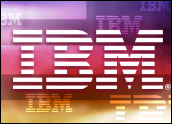
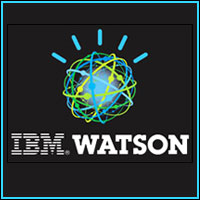
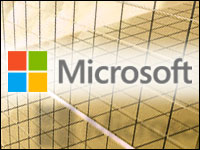
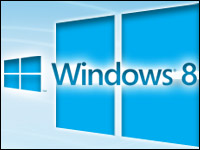
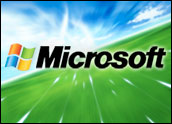
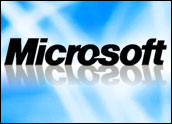

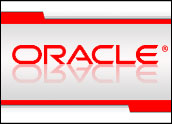
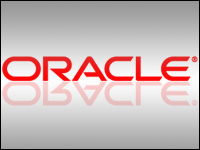










































Social Media
See all Social Media